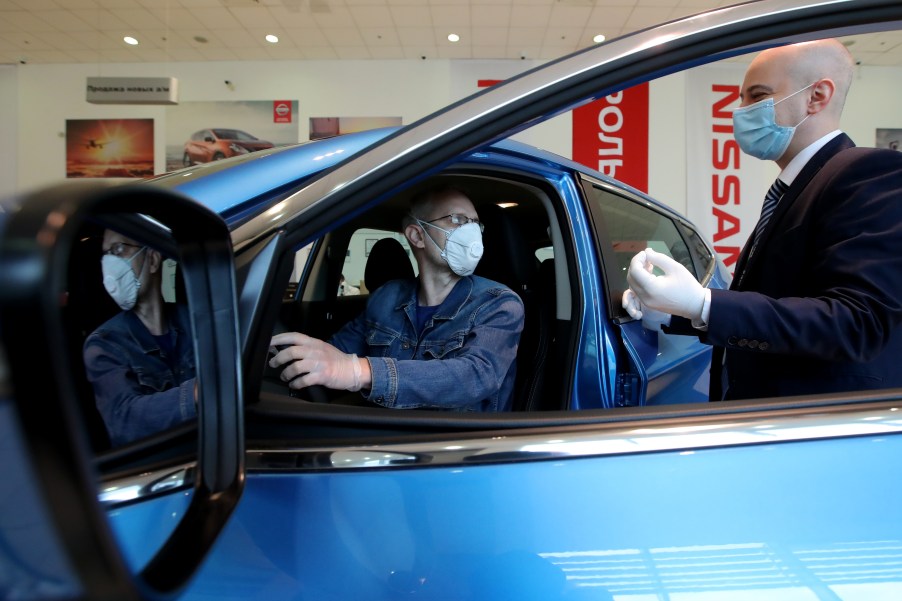
5 Reasons Why Trading Your Car Into a Dealership Could Be a Mistake
If you’re planning to buy a new or used car at a dealership and want to trade in your current car, then you may want to think twice before doing so. Sure, trading in your car to the dealer that you’re buying a car from makes sense from a convenience standpoint, but in reality, you’re most likely not going to get your top dollar for your trade or you could be wasting your time by doing it altogether. Here are five reasons that you shouldn’t trade your car into the dealership.
Trading in a “special” vehicle
If your current car is a “special” vehicle, like a one-off BMW M3 or a Honda S2000, for example, then you’re probably better off selling it yourself on a platform like Craigslist or Facebook Marketplace. A typical dealership will go off the market value of the car, as opposed to what the “street value” is of your special car, so you won’t get as much for it as you should.
Trading in a damaged car
While a dealership might not care too much about the small dents and dings, they will care if your car has some extensive damage that wasn’t taken care of. And while they will hit you with the “Our body shop will have to repair that” line, they will proceed to estimate the repairs to be a lot more than what you can probably find at the body shop down the street from you. If anything, get the car fixed first before getting it appraised by the dealer. But if you don’t want to go through that hassle, then consider selling the car on your own and getting the most money for it.
Don’t trade your car into the wrong dealership
Don’t trade a Maserati into a Honda dealership, and vice versa. Although it happens all the time, trading your off-brand car in to the dealership that you’re buying the car from typically leads to a lower appraisal amount. The main reason is that the Honda dealership, for example, will probably have a harder time selling that pristine Maserati because almost everyone browsing their used car inventory will most likely be looking for a commuter car as opposed to something luxurious.
Again, sell the car on your own, if possible, or at least get an appraisal done with a third-party vendor like Carvana or Carmax since those outlets will most likely be in a better position to sell any type of used car, regardless of its make.

Don’t trade in a car with a value difference greater than 20 percent
This one comes from Ari Janessian, a Youtuber and expert auto broker, who says that you shouldn’t trade your car into the dealer if the difference in its value is greater than 20 percent. According to his logic, if you’re trading in your Honda Civic, and the dealer appraises it $15,000, but they have a similar car on the lot priced at $22,000, then you know that they’re trying to make a lot of money off of you. The name of the game is to get the most money for your trade-in, so take it elsewhere if the difference is more than 20 percent.
Don’t trade it in if it’s an “auction car”
If you’re trading in an older car with well over 100,000 miles on it — or possibly even 200,000 miles – then don’t be surprised when the dealer appraises it at $500 to $1,000 at the most. They will likely follow that up by telling you that they’re “going to send the car to auction,” which is true. But if that’s the case, then try and sell the car on your own and squeeze every penny you can get out of it. After all, it’s lasted you a long time, so you might as well get the most out of it financially.

Always check with third-party vendors
Before you get your car appraised by the dealer, always make sure to get a second offer from a third-party vendor like Carmax or Carvana. Those outlets typically give higher offers and you can use that as ammunition for when you get the car appraised at the traditional dealership. If anything, they may meet or beat the quote that you get in order to earn your business.



